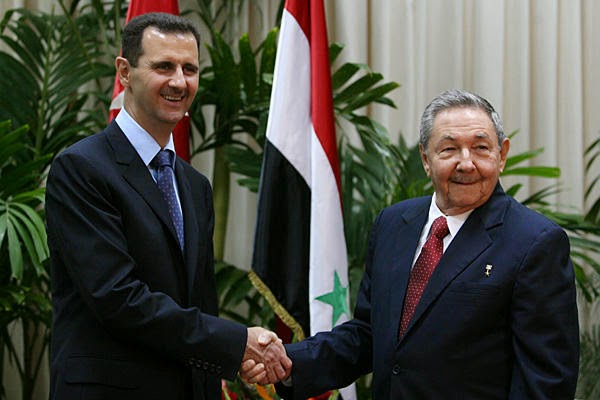" People talk about the impatience of the populace; but sound
historians know that most tyrannies have been possible because men moved
too late. It is often essential to resist a tyranny before it exists." - G.K. Chesterton, "Eugenics and Other Evils"
Today, in Hong Kong huge numbers of residents are taking to the streets in nonviolent protest because according to Yang Jianli, president of Initiative for China, Teng Biao, a human-rights lawyer, and Hu Jia , winner of the Sakharov Prize, "Beijing is reneging on the 'One Country Two Systems' principle laid out in the
Sino-British Joint Declaration of 1984 and the Basic Law, Hong Kong's
constitution." The people of Hong Kong, according to the nongovernmental organization Human Rights in China "are rejecting the August 31, 2014 decision of the National People’s
Congress Standing Committee on the “selection” of the Chief Executive,
which requires candidates to be endorsed by a majority of a
Beijing-controlled nominating committee. In the face of threats and
Beijing’s hardline stance, the students, supported by Hong Kong labor
unions and the public, have resorted to civil disobedience—class
boycotts and peaceful sit-ins—to press for meaningful universal
suffrage."
Whats taking place in Hong Kong has some similarities to Venezuela ( and this has generated some confusion in a video that went viral). In both places totalitarians are tightening controls over a free people, who are rising up nonviolently in defense of their freedoms.
The Chinese dictatorship has responded threatening a crackdown on protesters and their exists the possibility of another Tiananmen Square like massacre but this time in Hong Kong. Unfortunately, big money interests and lobbyists for the Peoples Republic of China, such as Henry Kissinger are known to disregard human rights embracing the worse of regimes for narrow interests. Listen to the students who took part in a week long boycott of classes and were interviewed on September 22, 2014. No doubt many are now out in the mass demonstrations:
Twenty five years ago in June the international community turned its back on demonstrators in Beijing and following the slaughter continued business as usual led by the United States with the Chinese regime that had murdered thousands of its own citizens and jailed thousands more for nonviolently demonstrating for an end to corruption and democratic reforms. Economic interests trumped human rights. The legacy of the crackdown has been succinctly described by Human Rights in China:
Tomorrow I will be wearing yellow and carrying an umbrella in solidarity with protesters in Hong Kong. Hope to see you doing the same.
 |
| Protestors hold up their cellphones in a display of solidarity (AFP/Getty) |
Whats taking place in Hong Kong has some similarities to Venezuela ( and this has generated some confusion in a video that went viral). In both places totalitarians are tightening controls over a free people, who are rising up nonviolently in defense of their freedoms.
The Chinese dictatorship has responded threatening a crackdown on protesters and their exists the possibility of another Tiananmen Square like massacre but this time in Hong Kong. Unfortunately, big money interests and lobbyists for the Peoples Republic of China, such as Henry Kissinger are known to disregard human rights embracing the worse of regimes for narrow interests. Listen to the students who took part in a week long boycott of classes and were interviewed on September 22, 2014. No doubt many are now out in the mass demonstrations:
Twenty five years ago in June the international community turned its back on demonstrators in Beijing and following the slaughter continued business as usual led by the United States with the Chinese regime that had murdered thousands of its own citizens and jailed thousands more for nonviolently demonstrating for an end to corruption and democratic reforms. Economic interests trumped human rights. The legacy of the crackdown has been succinctly described by Human Rights in China:
In 1989, millions of democracy and labor activists and other citizens throughout China demanded reforms. The leaders responded with tanks and violence and then attempted to silence demands for political reform with the benefits of economic liberalization. What the Chinese people got are unsustainable and inequitable development, growing social conflicts, and massive environmental and human costs.The movement in Hong Kong is nonviolent and international solidarity and support needs to be nonviolent in order to have a positive impact. Solidarity demonstrations are being held around the world in Delhi, Washington DC, New York City, and a college student, Heather Pickerell, has called on students to wear yellow in solidarity with demonstrators in Hong Kong on October 1st. More information is available on the campaign's facebook page and on tumblr.
Tomorrow I will be wearing yellow and carrying an umbrella in solidarity with protesters in Hong Kong. Hope to see you doing the same.




































